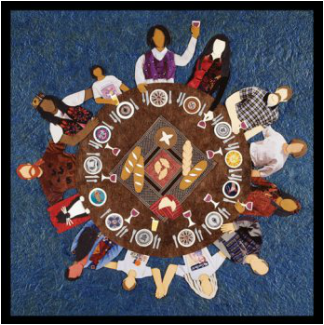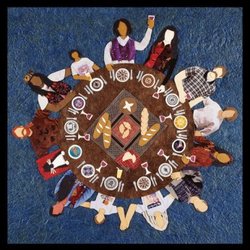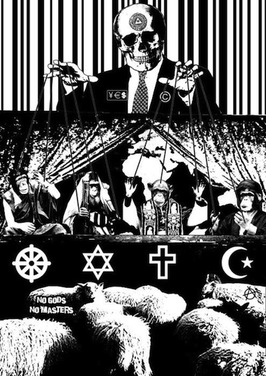 There are many models for uprooting oppression in our communities. To offer one of many, the Hosanna! People’s Seminary approach is to discern particular areas of privilege and poverty within a community through a three part process: awareness of privilege and oppression in the community; accountability in the community to the oppressed party and to the continued education and development of the privileged party through ally training; and solidarity in relationship with the oppressed party or those allying with the oppressed party outside of the community. For example, a group committed to rooting out ableism in their community and work would first grow in awareness of any ability-based disparities in privilege in the circle. To assist them in this task, they may seek out the help of an anti-oppression trainer, a trusted advisor, or a tool such as an accessibility audit.
 In Tell Us Our Names: Story Theology from an Asian Perspective, C.S. Song turns on its head pre-Communist era missionaries’ complaints against some Chinese converts being more interested in feeding their stomachs than their souls. The hungry suspects were accused of being “rice Christians”. He writes that, “we celebrate Christ’s divine presence in the eucharist… [because] in Christ the divine future,” a Kin-dom of God wherein all stomachs will be fed, “becomes the human present.” He writes of the hungry suspects: Rice determined their present and their future. Rice brings a concrete content to all talk about the future, about the world to come, and about the kingdom of God. For those who subsist on rice, can there be a future without rice? Can there be a world to come where they must struggle again for rice? . . . Understanding rice in this way, Christians in China should have been proud to be “rice Christians.” They should have represented this kind of “rice Christianity” to their rice-hungry compatriots. Preachers should have preached “rice sermons” to their famished audiences… theology must serve the God of the present- a God whose pockets are full of rice.1  In working through this series (where I’ve oh-so-briefly explored the complementarity of the way of Jesus and anarchism and the way the anarchic impulse has been expressed in Christian scriptures and history), I’ve realized a few things. Firstly, so much more work needs to be done. Commenters in earlier parts of this series have rightfully pointed out weak spots in my analysis, neglected historical figures, or unfleshed biblical strands. Secondly, no matter how sophisticated or compelling one’s arguments, people have always (and will always) declare with certainty that anarchism and Christianity are fundamentally incompatible. Let me give a classic example. Someone reposted part one of this series on anarchistnews.org. Predictably, many comments reflected this sentiment: What’s anarchistic with worshipping and serving a man, anyways? Socialist perhaps… fascistic, absolutely. Many anarchists I know assume that, at best, Christian Anarchists are either anarchists who refuse to let go of their childhood fantasies or Christians who really don’t understand anarchism. To be fair, I suspect that their suspicions are correct, more often than not. Anarchism, particularly as a loose set of principles, doesn’t often “play well” with Christianity. For one to be a Christian Anarchist, one would be considered fringe by the vast majority of Christians in history. But one would also be considered fringe by most anarchists as well. After all, “no gods, no masters” is a well-embraced slogan by most anarchists. |
Disclaimer
The viewpoints expressed in each reader-submitted article are the authors own, and not an “official Jesus Radicals” position. For more on our editorial policies, visit our submissions page. If you want to contact an author or you have questions, suggestions, or concerns, please contact us. CategoriesAll Accountability Advent Anarchism Animal Liberation Anthropocentrism Appropriation Biblical Exegesis Book Reviews Bread Capitalism Catholic Worker Christmas Civilization Community Complicity Confessing Cultural Hegemony Decolonization Direct Action Easter Economics Feminism Heteropatriarchy Immigration Imperialism Intersectionality Jesus Justice Lent Liberation Theology Love Mutual Liberation Nation-state Nonviolence Occupy Othering Pacifisim Peace Pedagogies Of Liberation Police Privilege Property Queer Racism Resistance Resurrection Sexuality Solidarity Speciesism Spiritual Practices Technology Temptation Veganism Violence War What We're Reading On . . . White Supremacy Zionism ContributorsNekeisha Alayna Alexis
Amaryah Armstrong Autumn Brown HH Brownsmith Jarrod Cochran Chelsea Collonge Keith Hebden Ric Hudgens Liza Minno Bloom Jocelyn Perry Eda Ruhiye Uca Joanna Shenk Nichola Torbett Mark VanSteenwyk Gregory Williams Archives
October 2017
|
Search by typing & pressing enter

 RSS Feed
RSS Feed